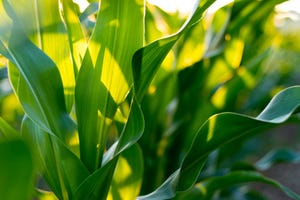Final quarter boosts Cal-Maine’s fiscal 2020 results
First three quarters of 2020 plagued by egg oversupply and depressed market prices.

Cal-Maine Foods Inc. this week reported results for its 2020 fourth quarter and fiscal year ended May 30, 2020.
Net sales for the 2020 fourth quarter were $453.3 million, a 61.6% increase from $280.6 million for the fourth quarter of 2019. The company reported net income of $60.5 million, or $1.25 per basic share and $1.24 per diluted share, for the 2020 fourth quarter, compared to a net loss of $19.8 million, or 41 cents per basic and diluted share, for the same period in 2019.
For fiscal 2020, net sales were $1.35 billion versus $1.36 million for the prior year. Net income for 2020 was $18.4 million, or 38 cents per basic and diluted share, compared to net income of $54.2 million, or $1.12 per basic and diluted share, for the prior year.
“Fiscal 2020 demonstrated Cal-Maine Foods’ resiliency in the face of challenging business conditions and volatile egg prices,” Cal-Maine chairman and chief executive officer Dolph Baker said. “After three fiscal quarters characterized by an oversupply of eggs and depressed market prices, demand for eggs increased and market prices rose 62.4% during our fourth fiscal quarter over the average price for the first three quarters as consumers purchased more eggs for preparing meals at home in response to the COVID-19 pandemic. This demand trend also coincided with higher seasonal demand during the peak Easter season. As a result, our sales volumes were up 10.9% compared with the fourth quarter of fiscal 2019. We are extremely proud of the dedicated work of Cal-Maine Foods employees across our operations who worked particularly hard to meet the unexpected and unprecedented demand for eggs.”
Baker relayed that the average price for conventional large eggs in the Southeast market for the 2020 fourth quarter increased to $1.71/doz., compared to 86 cents/doz. for the fourth quarter of 2019. The high for the quarter was $3.18/doz., while the low was $1.02, he added. For fiscal 2020, the Southeast market average price for conventional large eggs was $1.22, compared to $1.23 for 2019, with a high of $3.18 and a low of 62 cents.
The supply of eggs has continued to trend downward through the fourth quarter of fiscal 2020. The U.S. Department of Agriculture reported hen numbers on June 1, 2020, of 319.8 million, which represents 13.9 million fewer hens than a year ago, when USDA also reported high flock productivity. USDA reported that the hatch from January through May 2020 decreased 5.0% -- including a 13.1% decrease in May -- compared to the same period in 2019, which Baker said will likely further reduce future egg supply levels.
Sales of specialty eggs during the fourth quarter were $133.3 million, accounting for 29.9% of Cal-Maine’s egg sales revenue, compared with $119.9 million, or 44.1% of egg sales revenue, in the fourth quarter of 2019. The increase in specialty egg revenue in the fourth quarter resulted from a 10.4% increase in specialty dozens sold compared to the 2019 fourth quarter as well as to a slight increase in specialty egg prices.
Baker said specialty eggs are an important part of the company’s growth strategy.
“We have continued to position Cal-Maine Foods to meet the expected additional demand for cage-free eggs," he said. "California, Colorado, Washington, Oregon, Massachusetts, Rhode Island and Michigan have all passed minimum space and/or cage-free requirements, mandating the sale of only cage-free eggs with implementation of these laws ranging from January 2022 to January 2026. These states represent approximately 22.9% of the U.S. total population, according to the U.S. Census Bureau. Legislation is also pending in Arizona and Hawaii for cage-free requirements.”
According to Baker, Cal-Maine has invested more than $371.7 million in facilities, equipment and related operations to expand cage-free production.
“Throughout the next two years, additional cage-free capacity will come on line in Florida, Texas and Utah, which will provide significant additional processing, pullet and production capacity in time to meet expected customers’ needs,” he said.
COVID-19 challenges
Baker said operations ran well during the fourth quarter, especially during the outbreak of COVID-19.
“Despite the challenges, we have remained focused on efficient and responsible management of our production facilities,” he said, “However, current ongoing uncertainties and supply chain disruptions related to the COVID-19 outbreak, weather fluctuations and geopolitical issues surrounding trade agreements and international tariffs may lead to further price volatility.”
Looking ahead, Baker said the company will continue to take all necessary precautions in management in response to the COVID-19 pandemic.
“Our top priority is the health and safety of our employees, who work hard every day to produce eggs for our customers and contribute to a stable food supply. We are also grateful for our supply chain partners who have supported our ability to operate and meet our delivery requirements with minimal disruption. As the coronavirus continues to spread and reach more rural communities where we operate, it is critical that we provide a safe working environment, and we continue to implement appropriate protections taking into account protocols recommended by the Centers for Disease Control & Prevention and other government health agencies.”
The company said it will continue to execute its growth strategy in fiscal 2021 to provide a favorable product mix, including cage-free and other specialty eggs, invest in operations, identify acquisition or other growth opportunities that enhance production and manage operations in a responsible and sustainable manner.
“We have a strong balance sheet with the financial flexibility to support our growth strategy, and we look forward to the opportunities ahead for Cal-Maine Foods in fiscal 2021,” Baker added.
About the Author(s)
You May Also Like




.png?width=300&auto=webp&quality=80&disable=upscale)
